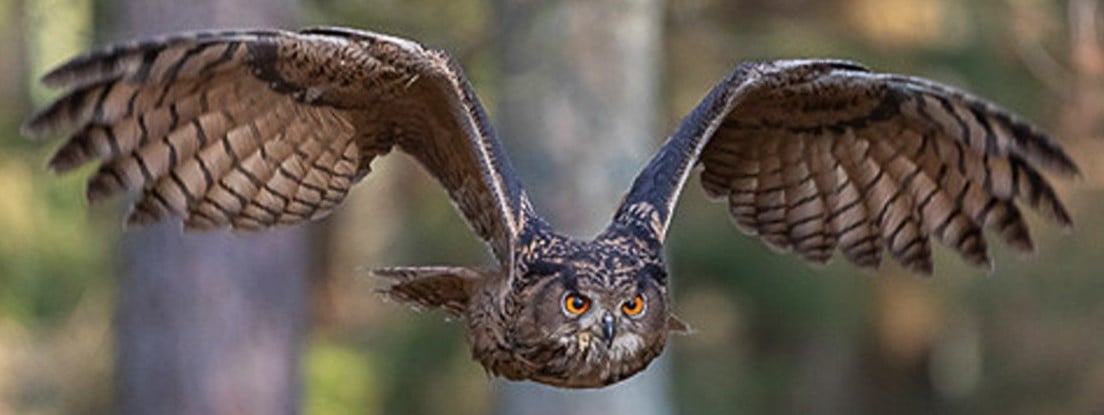Superbowl
For owls that are superb.

US Wild Animal Rescue Database: Animal Help Now
International Wildlife Rescues: RescueShelter.com
Australia Rescue Help: WIRES
Germany-Austria-Switzerland-Italy Wild Bird Rescue: wildvogelhilfe.org
If you find an injured owl:
Note your exact location so the owl can be released back where it came from. Contact a licensed wildlife rehabilitation specialist to get correct advice and immediate assistance.
Minimize stress for the owl. If you can catch it, toss a towel or sweater over it and get it in a cardboard box or pet carrier. It should have room to be comfortable but not so much it can panic and injure itself. If you can’t catch it, keep people and animals away until help can come.
Do not give food or water! If you feed them the wrong thing or give them water improperly, you can accidentally kill them. It can also cause problems if they require anesthesia once help arrives, complicating procedures and costing valuable time.
If it is a baby owl, and it looks safe and uninjured, leave it be. Time on the ground is part of their growing up. They can fly to some extent and climb trees. If animals or people are nearby, put it up on a branch so it’s safe. If it’s injured, follow the above advice.
For more detailed help, see the OwlPages Rescue page.
view the rest of the comments

Thank you for looking into it!
It does make sense for predators that usually aren't on the menu.
It might be a useful feature for small owls that don't rely that much on flight to hunt. Maybe Burrowing Owls? Or smaller, like elf owls? There are enough insects they could still hunt easily.
When you guys ask questions, it often gives me a question I didn't know that I had, so I'm always happy to look into things.
Long ago on one of the first message boards I was on, I remember people asking how the one person got to be such an expert on a niche topic. He said he just acted like an expert, and that made him required to fill in those gaps of knowledge whenever someone asked something he didn't know.
In the years since, it does seem a pretty reliable way of getting smarter. I've fallen into being the Lemmy owl expert, so now I must learn all the things!
The one article did discuss how different owls/raptors have different tail lengths, and as you also mentioned, some have different hunting styles and concerns.
It's always important to remember, especially with owls, they're typically not the easiest animals to study over the history of biology, as they're too darn alert and secretive and largely nocturnal, so there's still much we have to learn about many species.
That must have been the one that shows up as PDF. I'm on mobile rn and will check that out when I'm at home again.